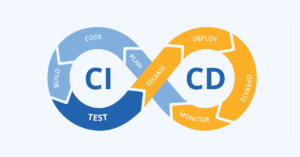Introduction:
DevOps practices have become essential in modern software development, enabling teams to streamline their workflows, improve collaboration, and deliver high-quality software faster. While DevOps has been widely adopted in web and backend development, its implementation in mobile app development presents unique challenges. In this article, we’ll explore the challenges faced in adopting DevOps for mobile app development and discuss solutions to overcome them effectively.
Challenges in DevOps for Mobile App Development:
- Platform Fragmentation: Mobile apps need to support multiple platforms (iOS and Android), each with its own development tools, languages, and deployment processes, leading to increased complexity and fragmentation in DevOps practices.
- Testing Across Devices: Mobile apps must be tested across a wide range of devices, screen sizes, and operating system versions to ensure compatibility and performance, making it challenging to automate testing and maintain consistent test environments.
- Continuous Integration and Delivery (CI/CD): Setting up CI/CD pipelines for mobile apps requires integration with platform-specific build systems (Xcode for iOS, Gradle for Android) and provisioning profiles, certificates, and signing keys, which can be cumbersome and error-prone.
- App Store Compliance: Submitting mobile apps to app stores (Apple App Store, Google Play Store) involves compliance checks, review processes, and approval requirements, which can introduce delays and bottlenecks in the CI/CD pipeline.
- Over-the-Air (OTA) Updates: Implementing OTA updates for mobile apps requires careful planning and coordination to ensure seamless deployment and rollback mechanisms, especially for apps with a large user base.
Solutions to DevOps Challenges in Mobile App Development:
- Unified Build and Test Automation: Use cross-platform build tools and testing frameworks (e.g., Xamarin, React Native, Appium) to streamline the build and test automation process across iOS and Android platforms, reducing duplication and complexity.
- Cloud-based Testing Services: Leverage cloud-based testing services (e.g., AWS Device Farm, Firebase Test Lab) to automate testing on real devices and simulate diverse user environments, reducing the need for maintaining an extensive device lab.
- Infrastructure as Code (IaC): Implement infrastructure as code practices to manage mobile app build environments, provisioning profiles, and signing keys using configuration files (e.g., Fastlane for iOS, Gradle for Android), enabling reproducible and version-controlled infrastructure.
- Continuous Delivery Pipelines: Implement CI/CD pipelines for mobile apps using tools like Jenkins, Bitrise, or GitHub Actions, integrating code changes, automated testing, code signing, and app store deployment into a streamlined workflow.
- Compliance Automation: Use automated compliance checks and static code analysis tools (e.g., SonarQube, Codacy) to enforce coding standards, security policies, and app store guidelines, ensuring compliance and quality throughout the development lifecycle.
- A/B Testing and Feature Flags: Implement A/B testing and feature flagging techniques to selectively roll out new features, collect user feedback, and monitor performance metrics, enabling controlled and gradual deployments without impacting all users simultaneously.
Conclusion:
DevOps practices offer significant benefits in mobile app development, enabling teams to deliver high-quality apps faster, with improved collaboration and efficiency. By addressing the unique challenges in DevOps for mobile app development and implementing solutions such as unified build automation, cloud-based testing, CI/CD pipelines, compliance automation, and feature flagging, teams can streamline their development workflows, improve release cycles, and deliver better experiences to users. As mobile app development continues to evolve, adopting DevOps practices will be essential for staying competitive, delivering value to customers, and achieving success in the rapidly changing mobile landscape.





